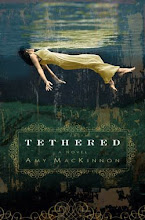Making a Literary Life Friday
This week, we have more good news. Read Hannah's post and you'll see why.
Lisa
Road trip research was one of the many things I fit into my holiday plans. But this I hadn't planned on. Reading Elizabeth George's book, Write Away, reminded me how important details are when it comes to rendering a setting. Though I've spent plenty of time in the New England setting of my novel-in-progress, a couple brief stops along the drive (through New Hampshire and Vermont) seemed to be a great idea. It was. Nothing like a few moments taking in sights and sounds of an area to leave a few lasting impressions and incorporate them into my writing.
Amy
I finished outlining my next book and am eager to get writing. First, however, I need to diagram exquisite sentences from some of my favorite books. I'll take pages from say, Cold Mountain or Memoirs of a Geisha, definitely The Inheritance of Loss, and feel the rhythm, listen to the tone, wander the settings, absorb the beauty of the characters' pain. I am a hungry student.
Hannah
In addition to reading, I chose to forego a family trip to the zoo to stay home and write. I was so busy thinking in the shower about what I was going to write, I forgot whether I shampooed. I think I did. What did I write? The end to Draft One (okay, more like draft five, if you count shifts along the way). Now to revisions!
Lynne
I read On Beauty by Zadie Smith and started reading Banishing Verona by Margot Livesey. I've outlined the first three chapters of my next novel and plan to steal time to write on New Year's Day. I want to start writing my new novel on the very first day of 2007.

